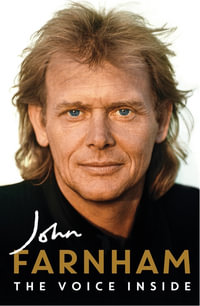Dan Rice, alone in the world as a boy, had tried whatever came to hand. He was a pig presenter, strongman, lecturer, comic singer, and blackface performer. Then he joined the glittering world of circus and quickly rose to prominence as a talking clown, tossing out quips, quoting Shakespeare, singing about bloomers, and feuding with Horace Greeley. He named his own circus "Dan Rice's Great Show" and labeled himself the Great American Humorist. The spitting image of Uncle Sam in a striped suit, top hat, and goatee, Rice spoke on issues of the day till he became one of the most famous men in America, probably seen by more people than anyone else at the time. That fame propelled him to several campaigns for public office, including a brief run for president.
So what happened? Why have so few people heard of Dan Rice? Rice rose to prominence because he was supremely adept at engaging audiences in what was then a bubbling public stew of participation. Circus, theater, minstrelsy, and lectures overlapped with politics, and crowds roared out with their boisterous opinions. Rice took that energy and tossed it back, dazzling audiences. But polite society, propelled by a vague urge of "refinement," increasingly deemed robust amusements inappropriate. The raucous antebellum blend of performers and audiences and forms began to split along a new performance hierarchy of high and low. Though Rice had pitched refinement too, circus was soon seen as essentially lowbrow, good only for children, simple jokes, and nostalgia. In that changed world, Rice's hearty connection with a noisy, participatory audience came to seem crude, and worse, a civic threat. Rice, famous for adult jokes, violent feuds, and cutting satire, became sentimentalized as Old Uncle Dan, friend to little children.
In Dan Rice: The Most Famous Man You've Never Heard Of David Carlyon weaves a rich portrait of a turbulent time that raised one ambitious, creative man to glorious heights and then, embarrassed by its enthusiasm, buried him in sentimentality until it forgot him. It is a brilliant, detailed cultural history of the mid-nineteenth century - its intoxicating theater, its turbulent circus, its wild politics, and its bigger-than-life personalities.
Industry Reviews
"Not just a biography of a unique and colorful man, but a portrait of a fragile American being played out on the stage of Dan Rice's Great Show."




















![Collins English Dictionary Complete and Unabridged Edition [14th Edition] : More Than 730,000 Words Meanings and Phrases - Collins Dictionaries](https://www.booktopia.com.au/covers/200/9780008511340/0814/collins-english-dictionary-complete-and-unabridged-edition-14th-edition-.jpg)



